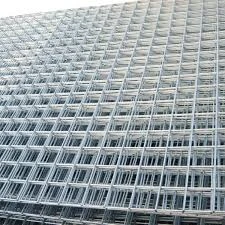Aug . 19, 2024 15:37 Back to list
Properties and Applications of Galvanized Iron Wire in Various Industries
The Versatility and Value of Galvanized Iron Wire
Galvanized iron wire has emerged as an indispensable material across various industries and applications, thanks to its unique properties and durability. This wire is created through a process known as galvanization, where iron or steel is coated with a layer of zinc, providing it with enhanced corrosion resistance. This article delves into the characteristics, applications, and benefits of galvanized iron wire, highlighting its importance in contemporary practices.
Understanding Galvanized Iron Wire
Galvanization serves the vital purpose of prolonging the life of iron and steel products. By applying a protective zinc coating, galvanized iron wire can withstand damage from environmental factors such as moisture, heat, and chemical exposure. The zinc layer provides a barrier against corrosive elements, ensuring that the iron underneath remains unblemished and functional for extended periods. When manufacturing galvanized iron wire, various gauges are produced, catering to different needs, ranging from thin, flexible wires to thicker, sturdier versions suited for more robust applications.
Applications of Galvanized Iron Wire
One of the primary uses of galvanized iron wire is in the construction industry. It is utilized in reinforcing concrete structures, providing necessary tensile strength. Wire mesh made from galvanized iron reinforces walls, slabs, and other architectural elements, ensuring structural integrity and durability. Furthermore, the wire is commonly employed in fencing applications. Whether for residential homes, farmland, or industrial properties, galvanized wire fencing is favored for its strength and ability to resist rust, making it ideal for securing boundaries while requiring minimal maintenance.
In the agricultural sector, galvanized iron wire plays a crucial role in supporting various activities
. It serves as trellises for climbing plants, fencing for livestock, and even as part of irrigation systems. The wire’s resistance to corrosion ensures that it can withstand outdoor exposure to elements, making it a reliable choice for farmers seeking long-lasting solutions.galvanized iron wire

Another significant area where galvanized iron wire finds extensive use is in the manufacturing of products such as wire ropes, nets, and binders. Its strength makes it suitable for lifting, binding, and securing purposes across numerous industries, including shipping, logistics, and construction. Additionally, the wire's flexibility allows it to be molded into different shapes, catering to specific requirements in various applications.
Benefits of Using Galvanized Iron Wire
The advantages of galvanized iron wire extend beyond just its physical properties. Cost-effectiveness is one of the most significant benefits. The initial investment in galvanized wire may be higher than that of non-galvanized options; however, the blend of durability and low maintenance translates to reduced replacement costs over time. This is particularly beneficial for projects that require long-term investment and reliability.
Moreover, galvanized iron wire contributes to sustainability efforts. Due to its extended lifespan, fewer resources are consumed in replacement and production, mitigating waste and promoting eco-friendliness. Additionally, as industries move towards more durable and long-lasting materials, galvanized iron wire fits perfectly into a more sustainable framework.
Conclusion
Galvanized iron wire is a versatile and valuable resource across various sectors, thanks to its strength, durability, and resistance to corrosion. From construction and agriculture to manufacturing and logistics, its applications are vast and varied. As industries continue to pursue efficient and long-lasting solutions, galvanized iron wire stands out as an ideal choice that not only meets those needs but also supports sustainability initiatives. Therefore, understanding and leveraging the benefits of galvanized iron wire is crucial for stakeholders aiming for quality and efficiency in their operations.
-
The Role of Field Wire Fence in Grassland Conservation
NewsJul.15,2025
-
Stainless Steel Razor Wire Durability in Coastal Environments
NewsJul.15,2025
-
Enhancing Home Security with Mesh Fences
NewsJul.15,2025
-
Diamond Mesh Wire for Small Animal Enclosures
NewsJul.15,2025
-
Common Wire Nail Tensile Strength Testing for Woodworking
NewsJul.15,2025
-
Barbed Wire Corrosion Resistance Galvanization Techniques
NewsJul.15,2025









